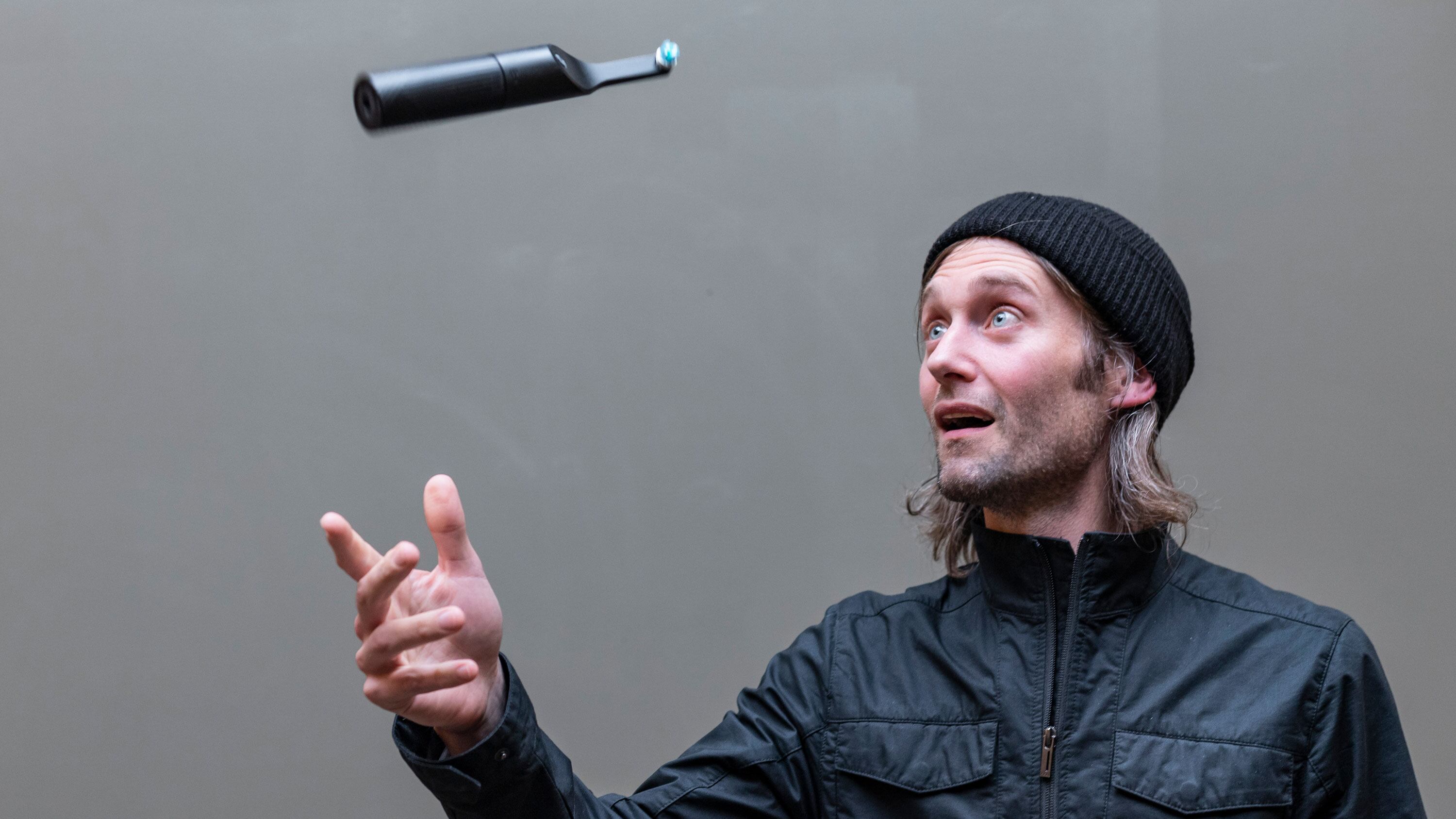How do you become an entrepreneur? You move out west, find an industry that needs to be "disrupted," design a product, and raise $500,000 on Kickstarter. And then go on to TechfestNW and win a pitch competition.
At least that is how Patrick Triato did it. Triato, 38, is founder and CEO of the Goodwell Co., which makes environmentally conscious toothbrushes and oral care products. Triato and his small team, which includes CBO David Becker, won TFNW’s PitchfestNW’s startup competition last month, beating out 132 other startups. Triato has landed early-stage funding from Portland Seed Fund and Elevate Capital, and is rolling out a product line of toothbrushes (including a vibrating toothbrush that runs without batteries or electricity). Recently, we met with Triato to discuss what it takes to become an entrepreneur.
WW: How did you get to this point?
Patrick Triato: I started the company in 2015 as a side project. Before that, I was at another startup called Carbon Audio, and I was the inventor of the Zooka [a wireless speaker for iPad, iPhone and iPod].
What happened to the Zooka?
It scaled really quick. It went from, you know, a $100,000 Kickstarter to selling 7,000 units a week in Apple retail, so it went like crazy and we ended up hiring a CEO to run the company. He [also] invested a lot in the company. He scaled it like it was already a $1 billion company, which kind of tanked us. We were really naive.
How do you go out of business by growing too fast?
We had sales we couldn't fulfill, and it was a whole shipping and logistics nightmare. We would make a ton of inventory, like hundreds of thousands of units, and then we just put them in a warehouse we were paying for.
Then what happened? Sales dry up?
Sales didn't really dry up. It was the amount of inventory we made and the promises we were making to all of our retailers. We wanted to do all these, like, really extensive displays, and we wanted to buy an iPad for the Zooka to sit on [in stores] and do all these really elaborate things. It was just that there were so many shiny objects.
We got several investments; we ended up raising like $4 million from some people in L.A. who had some connection with some people in Mexico. So this Mexican entrepreneur put in like $2 million.
It just got really mismanaged. I feel like our overhead was really high. We found a company in California to buy the company, essentially for its inventory and IP. I don't think anybody lost their shirt. I think everybody got their money back, but that was it. There was no like two-times return.
So you've had this entrepreneurial adventure with Carbon Audio. How did this lead to toothbrushes?
I started looking into industries that were super wasteful. Something that rose to the top quick was personal care. And this was 2015, so there was really an opportunity in the oral care industry that I could disrupt with a sustainable option.
You use a toothbrush for three months, and then it's sitting around in the landfill for 4,000 years. Like, that was the thing that made me think, "Oh, there is a real problem here." There are 8 billion people on the planet. Every three months we're throwing this thing out, times 8 billion people, times 4,000 years. That just blew my mind. That needed rethinking, in my mind.
It all started with this really simple offering of a bamboo toothbrush, which was just a really simple alternative to a plastic toothbrush. Once that started getting some traction, we started designing the premium toothbrush, which you keep the handle forever and just replace the heads. And the heads are biodegradable—it's made out of a bioplastic, which at its molecular level breaks down to organic matter, whereas petroleum-based things never actually break down.
What then?
So our business is gaining traction, but people along the way are saying, "Hey, I love this brand. I love your products, but my dentist recommends that I use an electric toothbrush."
It got me thinking, "What's the most sustainable alternative to an electric toothbrush?" and there's no answer out there. I just started back to first principles of design and problem-solving and asked, "What does a mechanical toothbrush do?" It moves bristles.
So I consulted with a mechanical engineering firm in Washington and was like, "Hey, I have this crazy idea for a mechanical toothbrush, and I can't get it out of my mind. Help me get past the idea. Prove me wrong or prove me right." Then, we built a working prototype.
[The "Be." brush is a patented, battery-free toothbrush that moves binchotan-infused bristles. The Be. simply requires users to twist the base a few times. A few cranks are all that's required to power the brush for 2 minutes.]
So we launched the "Be." on Kickstarter, and in 24 hours it raised $100,000. All told, in 2017, we raised a little over half a million [dollars]. We put all of that money into R&D and engineering and patents.
What keeps you awake at night?
What doesn't keep me up at night. I have a hard time delegating, so most of my sleeplessness comes from the overarching theme of having to let go and trust people.
What advice would you give a young entrepeneur?
Really be honest and know what you do well, and what you don't, and to know it's 100 percent A-OK not to be great at everything. A lot of the mistakes I made—and make—were from trying to take on everything myself.
FIND IT: Goodwell products are available at New Seasons, Market of Choice, Made Here, World Market, Free People and Urban Outfitters. Start Me Up is an occasional column interviewing founders of Portland startups.
